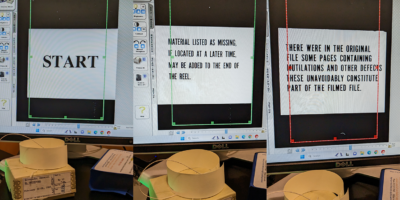By Jesse Rappaport
A textbook pretends to be a neutral, objective collection of facts that embodies the accumulated knowledge of a discipline. However, as instructors, every part of our course design helps to convey a certain set of values, and this includes our assigned texts, as well. In my discipline, philosophy, a popular introductory textbook (like Perry, Bratman, and Fischer’s Introduction to Philosophy) costs upwards of $80. It consists mainly of essays and philosophical excerpts, most of which are over 100 years old. Many of these works are in the public domain. Few, if any, were ever published to make a profit.
By assigning such a text to our students, we reinforce the idea that academic knowledge is for those privileged enough to afford it, and that the intellectual achievements of past generations are not part of our intellectual commons, but can only be accessed for a hefty fee. When students look at the table of contents and see only the names of people who have been dead for hundreds of years, they are bound to feel some confusion—where exactly is their money going? Clearly not to the people who wrote the essays!
This semester, I am teaching logic. Logic is an ancient discipline with, for better or worse, comparatively little practical value. Furthermore, although it is still a rich field of study, my course focuses on content that has been around for over a century. So when it came time to plan my course, I decided to do things differently: I would only use materials that were free of cost and, to the greatest extent possible, “open source.”
The term “open source” comes from “open source software,” which is a spin-off of the “free software” movement. Free/Open-Source Software (FOSS) is software that is distributed along with its source code and a license that enables people to use, modify, and redistribute the software in practically any way they see fit. (The CUNY Academic Commons—which houses this blog—is just one of many examples at CUNY of open-source technology in action.) Although free software is usually free of charge, the “free” is really supposed to mean freedom. In the same sense, an “open-source” educational text would be one that teachers are able to use, modify, and redistribute however they want.
How liberating! But wait… why would anyone waste their time making a textbook for free? That’s a fair question, but it only makes sense within the standard capitalist logic of academia, where everything comes at a price. If you face constant pressure to publish in professional journals, go to conferences, etc., then doing something like writing a free textbook for under-resourced learners is bound to seem foolish. But that doesn’t mean that people aren’t otherwise motivated to do such things. And happily, some people do!
In my case, I was fortunate enough to discover a few open-source logic projects that embody precisely the values of freedom and community that I want to foster in my classroom. First I came across openlogicproject.org, “a collection of teaching materials on mathematical logic aimed at a non-mathematical audience.” This text is collaboratively edited by a team of professional philosophers, and they clearly state their ethics: “It is open: you’re free to change it whichever way you like, and share your changes. It is collaborative: a team of people is working on it, using the GitHub platform, and we welcome contributions and feedback.”
I wanted to highlight the Open Logic Project because it is a fabulous example of free education, but unfortunately the texts they provide are aimed at an intermediate level. However, I was able to find another text that suited my needs: Cathal Woods’ An Introduction to Reasoning. It contains clear, accurate chapters covering almost all the material needed for my course, as well as accompanying problem sets (amazing!) And the whole textbook is stored on a Google drive that you are free to download and edit.
I have found the textbook contains a few errors, but what textbook doesn’t? Overall, it’s been perfectly adequate, and the problem sets allow me to easily provide homework assignments and edit them however I want (something you technically don’t have the freedom to do with proprietary texts, which prohibit this kind of modified redistribution).
The primary service provided by an expensive philosophy textbook is convenience: it is convenient to have all of your readings in one place, with an agreed upon translation, etc. By “going free,” you may have to rely on a variety of different sources, and you might even need to spend some time correcting or adapting the material to fit your classroom. But by doing so, you can in fact perform a strong but subtle act of resistance against the privatization of our common intellectual history and the idea that all knowledge must come at a price. Such work is especially important at an institution like CUNY, given its mission of educational access, famously embodied by City College’s reputation as the “Harvard of the Proletariat.”
Those instructors looking to break their ties to textbooks should know that, many people at CUNY have already taken up the cause of Open Educational Resources (OERs). For more, check out TLC fellow Andy McKinney’s recent post on the topic, or the Commons group “Open @ CUNY,” which “was created to educate the CUNY community about open access” and open educational resources. The more we publicize these issues, the more likely instructors will know that there are other options out there.
Jesse Rappaport is a doctoral candidate in Philosophy at the Graduate Center and a Contributing Writer to Visible Pedagogy.









Leave a Reply